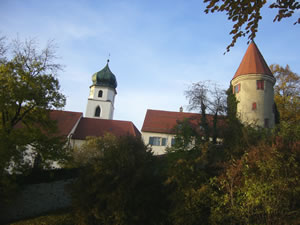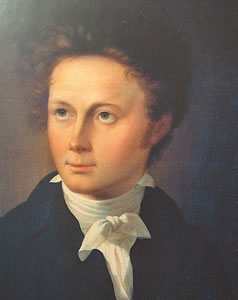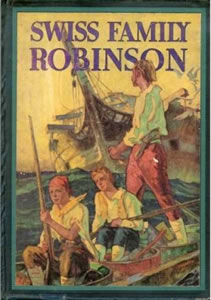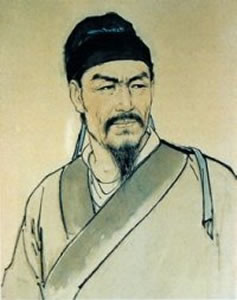De Belgische schrijver Leo Pleysier werd geboren in Rijkevorsel op 28 mei 1945.
Uit: De Latino’s
‘Een mooi plan, een goed plan, een stout plan, een sympathiek plan, een aantrekkelijk plan. Daar niet van. Alleen is er nog altijd niets van terechtgekomen tot nu toe. De realiteit zit dwars en de werkelijkheid wil niet mee. Hoe lang nog? Het ziet er voor Anna en Toon allemaal niet zo best uit nee. Hun lang gekoesterde ambitie, hun grote toekomstproject dreigt alleen maar een fictie te blijven. Een hersenschim. Een fantasie. Een misrekening. Een fiasco. Daar ziet het hoe langer hoe meer naar uit. Teleurstelling en ontgoocheling loeren al om de hoek.’
(…)
‘Het allermooiste kindje wordt vervolgens begraven op een kleine, terrasvormige met stenen ommuurde hoogte die zich boven Calistos verheft. […] Zo erg. Zo onrechtvaardig. Zo schrijnend. Zo triest. En toch. Wat had het een fraaie en bekoorlijke beelden kunnen opleveren als een buitenstaander op het idee was gekomen om met een camera achter deze begrafenisstoet aan te lopen om deze teraardebestelling op film vast te leggen. Want het is toch werkelijk prachtig: het majestueuze Andelandschap met daarin een minuscuul bergdorp vanwaar een kleurrijke stoet indianen zich langs een smal pad naar de hogerop gelegen begraafplaats begeeft.’
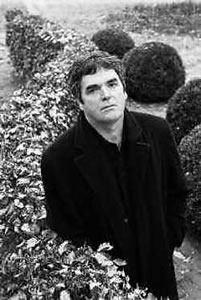
Leo Pleysier (Rijkevorsel, 28 mei 1945)
De Duitse schrijver Frank Schätzing werd geboren in Keulen op 28 mei 1957.
Uit: Limit
“Jericho hatte die erste Maschine abgewürgt. Dieses Modell war neu und gegenüber dem Vorgänger stark verändert. Die Kontrollen erstrahlten auf einer Benutzeroberfläche, es gab keine mechanischen Elemente mehr. Er rutschte aus dem Sattel, sprang auf das zweite, laufende Airbike und tastete sich über den Touchscreen. Diesmal hatte er mehr Glück. Die Maschine reagierte, allerdings mit der Heftigkeit eines angestochenen Bullen, bockte und versuchte ihn abzuwerfen. Seine Hände umspannten die Griffe. Früher hatten sie waagerecht gestanden, jetzt bogen sie sich aufwärts und ließen sich in alle Richtungen drehen. Das Bike geriet in heftige Kreiselbewegung. Wie bei einem Spielautomaten blinkten die Anzeigen. Auf gut Glück berührte Jericho zwei davon, und die Karussellfahrt endete, dafür wurde er auf die Vorderfront der Zentrale zugetragen, verlagerte unmittelbar vor der Kollision sein Körpergewicht und flog eine ausgedehnte 180-Grad-Kurve. Sein Blick suchte die Umgebung ab.
Von Yoyo oder Zhao keine Spur.
Allmählich glaubte er den Bogen rauszuhaben. Er ließ die Maschine steigen, wobei er versäumte, die Düsen synchron zu schwenken, was ihn gleich wieder in die Bredouille brachte, weil sich das Bike nun raketengleich in den Himmel schraubte. Unaufhaltsam fühlte er sich aus dem Sattel rutschen, mühte sich mit fliegenden Fingern, den Fehler zu korrigieren, erlangte die Kontrolle zurück, flog eine weitere Kurve, den Hochofen im Auge.
Da waren sie!”

Frank Schätzing (Keulen, 28 mei 1957)
De Ierse schrijfster en columniste Maeve Binchy werd geboren op 28 mei 1940 in Dalkey.
Uit: Quentins
“When Maggie did so well in her Leaving Certificate her father said it was something that called for a Serious Celebration. The Nolan family were going out to have dinner in a hotel.
This had never happened before.
They had never even been in an ordinary restaurant let alone a hotel restaurant. Other people went to the Chinese or the Italian. It was the end of the Sixties, Ireland was coming on.
But not the Nolans. There was never the money to spare. There was so much to pay for.
And so many calls on their time. Mrs Nolan’s Mam lived with them for one thing and Mr Nolan’s Dad had to have his dinner cooked for him and brought over to his flat every day.
Maggie was the eldest of five.
Mr Nolan worked in charge of the bacon counter at one of those old-fashioned grocery stores that people said were on the way out. He was very happy and well respected there but of course if the store really were on the way out it would be hard for Mr Nolan to get another job.
Mrs Nolan worked as a cleaner in the hospital. She was very popular with the nurses and the patients, but the work was long and tiring, her veins were bad and she hoped she would be able to continue until all the children were accounted for.
Maggie was the eldest of five. The others were all boys who wanted to play for English soccer teams. They had no interest in their studies and were utterly amazed that their big sister had got enough marks in exams to make people talk seriously about her going to University. They were even more amazed that their father was going to take them to the big posh hotel where nobody they knew had even been inside the door.
But he kept saying Maggie’s marks would mean nothing unless there was a Serious Celebration.
“Will it be just the three of you – Mam, Dad and Maggie?” they wanted to know.
“A family celebration,” he insisted.”

Maeve Binchy (Dalkey, 28 mei 1940)
Zie voor alle bovenstaande schrijvers ook mijn blog van 28 mei 2007 en ook mijn blog van 28 mei 2008 en ook mijn blog van 28 mei 2009.
De Indiaase dichter, vertaler en literatuurwetenschapper K. Satchidanandan werd geboren op 28 mei 1946 in centraal Kerala. Zie ook mijn blog van 28 mei 2009.
The Mad
The mad have no caste
or religion. They transcend
gender, live outside
ideologies.
We do not deserve
their innocence.
Their language is not of dreams
but of another reality. Their love
is moonlight. It overflows
on the full-moon day.
Looking up they see
gods we have never heard of. They are
shaking their wings
when we fancy they are
shrugging their shoulders. They hold
that even flies have souls
and the green god of grasshoppers
leaps up on thin legs.
At times they see trees bleed, hear
lions roaring from the streets. At times
they watch Heaven gleaming
in a kitten’s eyes, just as
we do. But they alone can hear
ants sing in a chorus.
While patting the air
they are taming a cyclone
over the Mediterranean. With
their heavy tread, they stop
a volcano from erupting.
They have another measure
of time. Our century is
their second. Twenty seconds,
and they reach Christ; six more,
they are with the Buddha.
In a single day, they reach
the big bang at the beginning.
They go on walking restless, for
their earth is boiling still.
The mad are not
mad like us.
Door de dichter zelf uit het Malayalam vertaald

K. Satchidanandan (Kerala, 28 mei 1946)
De Ierse dichter en songwriter Thomas Moore werd geboren op 28 mei 1779 in Dublin. Zie ook mijn blog van 28 mei 2009. en ook mijn blog van 28 mei 2008. en ook mijn blog van 28 mei 2007 en ook mijn blog van 28 mei 2006.
Alone in Crowds to Wander On
Alone in crowds to wander on,
And feel that all the charm is gone
Which voices dear and eyes beloved
Shed round us once, where’er we roved —
This, this the doom must be
Of all who’ve loved, and loved to see
The few bright things they thought would stay
For ever near them, die away.
Though fairer forms around us throng,
Their smiles to others all belong,
And want that charm which dwells alone
Round those the fond heart calls its own,
Where, where the sunny brow?
The long-known voice — where are they now?
Thus ask I still, nor ask in vain,
The silence answers all too plain.
Oh, what is Fancy’s magic worth,
If all her art cannot call forth
One bliss like those we felt of old
From lips now mute, and eyes now cold?
No, no — her spell in vain —
As soon could she bring back again
Those eyes themselves from out the grave,
As wake again one bliss they gave.

Thomas Moore (28 mei 1779 – 25 februari 1852)
Portret door Martin Archer Shee, ca.1817
De Amerikaanse schrijver Walker Percy werd geboren op 28 mei 1916 in Birmingham, Alabama. Zie ook mijn blog van 28 mei 2009.
Uit: Walker Percy: A Life (Door Patrick H. Samway, S.J.)
“It is said that anyone who grows up in the Mississippi Delta knows the anecdotal histories of 1,200 people, and indeed many Southerners pride themselves on their ability to trace quickly some fairly complicated family trees. Although Walker Percy rarely spoke about his family history (see the Appendix), he knew that it was both long and complicated. His sense of it was deeply embedded in his consciousness, because certain prominent last names were often repeated as first or middle names in subsequent generations of Percys–a common feature of Southern nomenclature.
Such naming guaranteed that the ghostly presence of an ancestor would haunt the person carrying it. For example, his grandfather was named Walker Percy, his great-grandfather’s brother was John Walker Percy, and his great-great-grandfather’s wife’s brother-in-law, John Williams Walker, had a son, LeRoy Pope Walker, who was Secretary of War under Confederate President Jefferson Davis and a brigadier general in the Confederate Army. (Walker Percy once wrote his friend Shelby Foote that he took the name of John when he converted to Catholicism because he had “two Southern surnames for a name, even if one of them was that of a distinguished Confederate Sec’y of State.” Foote corrected him about Secretary Walker–“he wasn’t distinguished” and he was Secretary of War.) In reverse irony, LeRoy Walker’s brother was Percy Walker–a name fans often misused for Walker Percy (if they were not miscalling him Perry Walters). In addition, family names seem to be constantly recycled, sometimes in a curiously asexual manner. Walker Percy’s brother, Billups Phinizy (“Phin”) Percy, for example, has a daughter, Melissa Phinizy Percy, who is married to a second cousin, Bolling Phinizy Spalding, and their son is named Phinizy Percy Spalding. Indicative of Walker’s own awareness of his ancestry, one of his daughters, Mary Pratt Percy Lobdell, is named after her great-grandmother Mary Pratt DeBardeleben Percy, a key figure in the Percy family history. (In one draft of the novel The Thanatos Syndrome, Percy has a character named Alice Pratt, in this case a young woman from Montgomery, Alabama.) Since he spent his formative years in Birmingham (Alabama), Athens (Georgia), and Greenville (Mississippi), he willy-nilly learned his family history from Percy, Debardeleben, and Phinizy relatives.“

Walker Percy (28 mei 1916 – 10 mei 1990)
De Australische schrijver Patrick White werd geboren in Londen op 28 mei 1912. Zie ook mijn blog van 28 mei 2009.
Uit: Voss
‘Sanderson was a man of a certain culture, which his passionate search for truth had rid of intellectual ostentation. In another age the landowner might have become a monk, and from there gone on to become a hermit. In the mid nineteenth century, an English gentleman and a devoted husband did not behave in such a manner, so he renounced Belgravia for New South Wales, and learned to mortify himself in other ways. Because he was rich and among the first to arrive, he had acquired a goodish slice of land. After this victory of world pride, almost unavoidable perhaps in anyone in his class, humility had set in. He did live most simply, together with his modest wife. They were seldom idle, unless the reading of books, after the candles were lit, be considered idleness. This was the one thing people held against the Sandersons, and it certainly did seem vain and peculiar. They had whole rows of books, bound in leather, and were forever devouring them. They would pick out passages for each other as if they had been tidbits of tender meat, and afterwards shine with almost physical pleasure. Beyond this, there was nothing to which a man might take exception. Sanderson tended his flocks and herds like any other Christian. If he was more prosperous than most, one did not notice it unduly, and both he and his wife would wash their servants’ feet in many thoughtful and imperceptible ways.
‘We are how many miles now from your property?’ Voss would ask on and off.
And Sanderson would tell.
‘I am most anxious to see it,’ Voss said invari
ably.
Places yet unvisited can become an obsession, promising final peace, all goodness. So the fallible man in Voss was yearning after Rhine Towers, investing it with those graces which one hopes to find at the heart of every mirage, entering its mythical buildings, kindling a great fire in the expectant hearth Its name glittered for him, as he rode repeating it to himself.’
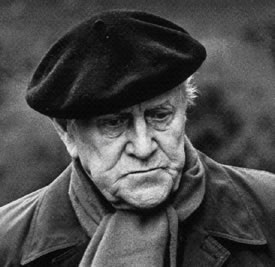
Patrick White (28 mei 1912 – 30 september 1990)
De Nederlandse schrijver en dichter Sjoerd Leiker werd geboren in Drachten op 28 mei 1914. Zie ook mijn blog van 28 mei 2009.
Uit: Piet Calis. De vrienden van weleer. Schrijvers en tijdschriften tussen 1945 en 1948
“Tijdens de gesprekken tussen Leiker en Lubberhuizen kwam ook de gedachte op om het tijdschrift voor zowel oudere als jongere schrijvers open te stellen. Hoe dat in het vat gegoten moest worden, bleef nog vaag. Wel werd met het idee gespeeld daartoe twee zelfstandige redacties aan te stellen.
Leiker vertelde in 1983 over het tijdschrift: ‘Voor dat blad heb ik de naam Voorpost bedacht. Als oud-militair vond ik dat een geschikte naam voor een literair tijdschrift.’2 Denkbaar is overigens dat Leiker ook op dat idee gebracht werd door een blad onder de naam Voorpost dat de jonge schrijvers A. Marja en Hanno van Wagenvoorde al in 1940 hadden willen oprichten en waarbij ook Anna Blaman betrokken was geweest.
Leiker vertelde verder: ‘Geert Lubberhuizen met zijn grote liefde voor het mooi verzorgde boek vond dat Voorpost in een portefeuille moest worden uitgegeven. Dus losse rijmprenten op klein formaat en een novelle in fraai gebonden vorm. Daar is ook materiaal voor verzameld. Mijn voorstel was om helemaal geen schuilnamen meer te gebruiken, maar om die prenten en die boekjes die dan in zo’n portefeuille zouden zitten, anoniem te publiceren. Voorpost zou dus een verzameling losse teksten en boekjes worden.’
Afgesproken werd een werkgroep te vormen, die de publicatie van het blad voorbereiden zou. Leiker ging daartoe allereerst op zoek in eigen kring.”

Sjoerd Leiker (28 mei 1914 – 15 december 1988)
De Oostenrijkse schrijver Fritz Hochwälder werd geboren op 28 mei 1911 in Wenen. Zie ook mijn blog van 28 mei 2009.
Uit: F. Hale: Fritz Hochwälders Das Heilige Experiment
„Das heilige Experiment gave Hochwälder his breakthrough as a renowned playwright. He began to do serious research on the Jesuit enterprise in South America at the Central Library in Zürich, where he also read Dostoevsky’s The brothers Karamazov and The demons. In fact, however, Hochwälder’s first serious exposure to the history of the Society of Jesus had come two years before his departure from Austria when he read René Fülöp-Miller’s Macht und Geheimnis der Jesuiten.5 When interviewed after the Second World War about the etiology of Das heilige Experiment, he attributed it in part to this work, in which both the accomplishments and the darker sides of the history of the Society of Jesus are emphasised. “From then on I had a theme working inside me, but not anchored yet to any dramatic structure,” Hochwälder recalled. The National Socialist takeover of Austria and German expansion elsewhere in Europe provided that framework. Upon reading The demons, he was struck by Dostoevsky’s prediction of “the danger of a faithless socialism which in its very materialistic faithlessness will acquire a religious tinge. Suddenly I felt the play focus inside me.” This inspiration prompted Hochwälder to request a two-month leave of absence from the refugee labour camp in the canton of Ticino where he was then residing. This was granted late in 1941. Armed with a pencil and a
modest amount of paper, the young Austrian went to the balcony of a house overlooking Ascona. Hochwälder initially hoped to use this period to work out the philosophical problems inherent in the play germinating in his mind, but his creativity accelerated to a level unprecedented in his brief career. At the end of his furlough, most of the manuscript was thus complete, albeit in a rudimentary and never published form titled Die Jesuiten in Paraguay.6 This proto-text took less than three weeks to write in December 1941.“

Fritz Hochwälder (28 mei 1911 – 20 oktober 1986)
Zie voor nog meer schrijvers van de 28e mei ook mijn vorige blog van vandaag.




